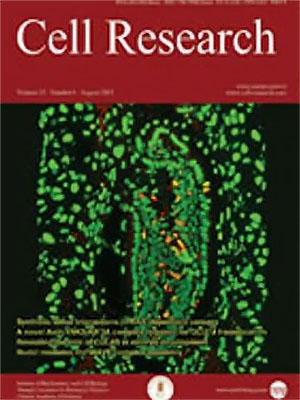
Volume 10, No 3, Sep 2000
ISSN: 1001-0602
EISSN: 1748-7838 2018
impact factor 17.848*
(Clarivate Analytics, 2019)
Volume 10 Issue 3, September 2000: 179-192
REVIEWS
Activation-induced cell death in B lymphocytes
DONJERKOVIĆ Dubravka, David W SCOTT
Department of Immunology, Holland Laboratory for the Biomedical Sciences, American Red Cross, 15601 Crabbs Branch Way, Rockville, MD, 20855. USA
Correspondence:
Upon encountering the antigen (Ag), the immune system can either develop a specific immune response or enter a specific state of unresponsiveness, tolerance. The response of B cells to their specific Ag can be activation and proliferation, leading to the immune response, or anergy and activation-induced cell death (AICD), leading to tolerance. AICD in B lymphocytes is a highly regulated event initiated by crosslinking of the B cell receptor (BCR). BCR engagement initiates several signaling events such as activation of PLCρ, Ras, and PI3K, which generally speaking, lead to survival. However, in the absence of survival signals (CD40 or IL-4R engagement), BCR crosslinking can also promote apoptotic signal transduction pathways such as activation of effector caspases, expression of pro-apoptotic genes, and inhibition of pro-survival genes. The complex interplay between survival and death signals determines the B cell fate and, consequently, the immune response.
FULL TEXT | PDF
Browse 2616


